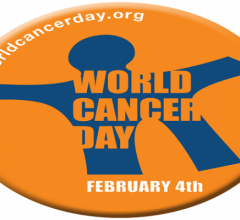February 26, 2008 - The Prevent Cancer Foundation awarded its latest round of research grants and fellowships, choosing nine successful projects out of a pool of 77 applications nationwide.
Only a fraction of long-term smokers developing lung cancer; so the ability to focus screening efforts in a high-risk subgroup could have great potential, said the foundation. The foundation is funding Olga Gorlova, Ph.D., of M.D. Anderson Cancer Center in Houston, in her efforts to estimate the benefit of lung cancer screening among high-risk individuals and to identify an optimal screening strategy for larger populations based on individual risk profiles.
Less than five percent of all cases of colon cancer can be attributed to known genetic mutations, according to the foundation. Identifying and monitoring other genes involved in colon cancer may pave the way for early detection. The foundation supports Courtney Gray-McGuire, Ph.D., at Case Western Reserve University in Cleveland in her efforts to locate a colon cancer susceptibility gene on chromosome nine.
There is a growing evidence to suggest that regularly including folate in the diet can reduce colorectal cancer risk, said the foundation. Folate is a key player in keeping DNA healthy, so it is likely that studying folate-dependent pathways will help identify new ways to prevent colorectal cancer. The Foundation is funding Zhenhua Liu, Ph.D., at Tufts University in Bedford, MASS to examine folate-specific genetic pathways and early tumor growth and development.
People in underdeveloped countries, with a high risk of exposure to specific intestinal toxins from bacteria, seem to be protected from colorectal cancer, according to the foundation. These toxins are known to potently activate guanylyl cyclase C, a protein inhibiting to intestinal tumor formation in mice. The foundation is supporting Giovanni Pitari, M.D., Ph.D., at Thomas Jefferson University in Philadelphia, in his work to study the role of guanylyl cyclase C as a molecular target to prevent colorectal cancer.
According to the foundation, as many as 500,000 people worldwide are diagnosed with hepatocellular carcinoma, a common liver cancer, each year. The low five-year survival rate of 11 percent, as reported by the American Cancer Society in 2008, is likely because the cancer is identified in advanced stages, too late for effective treatment. The Foundation is funding Habtom Ressom, Ph.D., of Georgetown University in Washington, D.C., to identify biomarkers for the early detection of liver cancer.
The vast majority of adults who smoke picked up their first cigarettes during their teenage years, according to the foundation. By the time they turned 18, they were regular smokers with a growing risk of lung cancer. By understanding factors that keep adolescents from beginning to smoke and progressing to regular smoking habits, more effective and practical smoking prevention programs can be developed, said the foundation, who is funding Daniel Rodriguez, Ph.D., of the University of Pennsylvania, to examine the effect of “antismoking parent practices” on adolescent smoking.
Oral cancer often goes unrecognized until its late stage where surgery can be less successful and more disfiguring, said the foundation. Most patients with oral cancer first had oral lesions which then became cancerous. But not all lesions are a sign of cancer: only 18 percent ever become cancerous. Differentiating between these types of lesions at an early stage could be key to saving lives. The foundation is funding Xiaofeng Zhou, Ph.D., at the University of Illinois – Chicago, to identify the biomarker differences between the oral lesions that become cancerous and those that do not.
For more information: www.preventcancer.org


 September 07, 2023
September 07, 2023 






